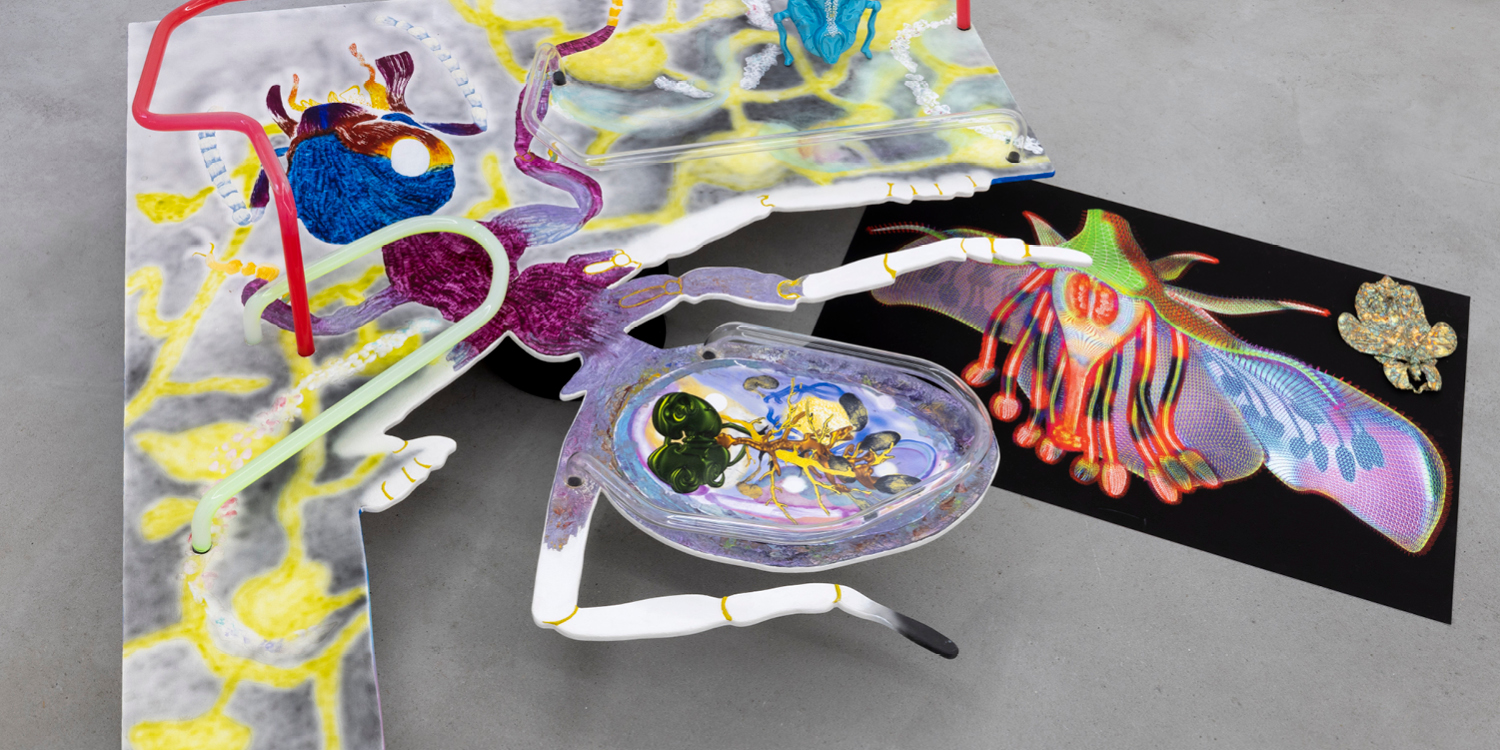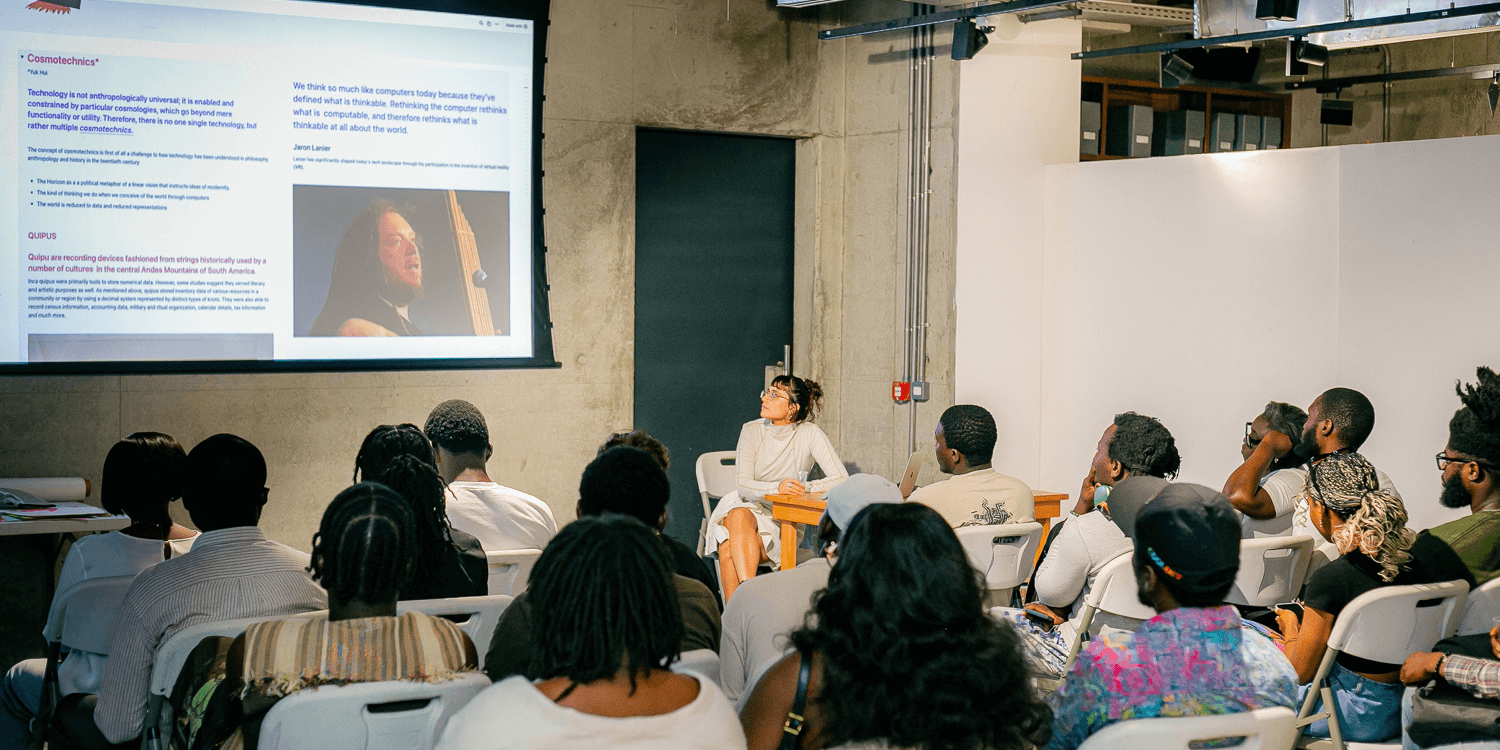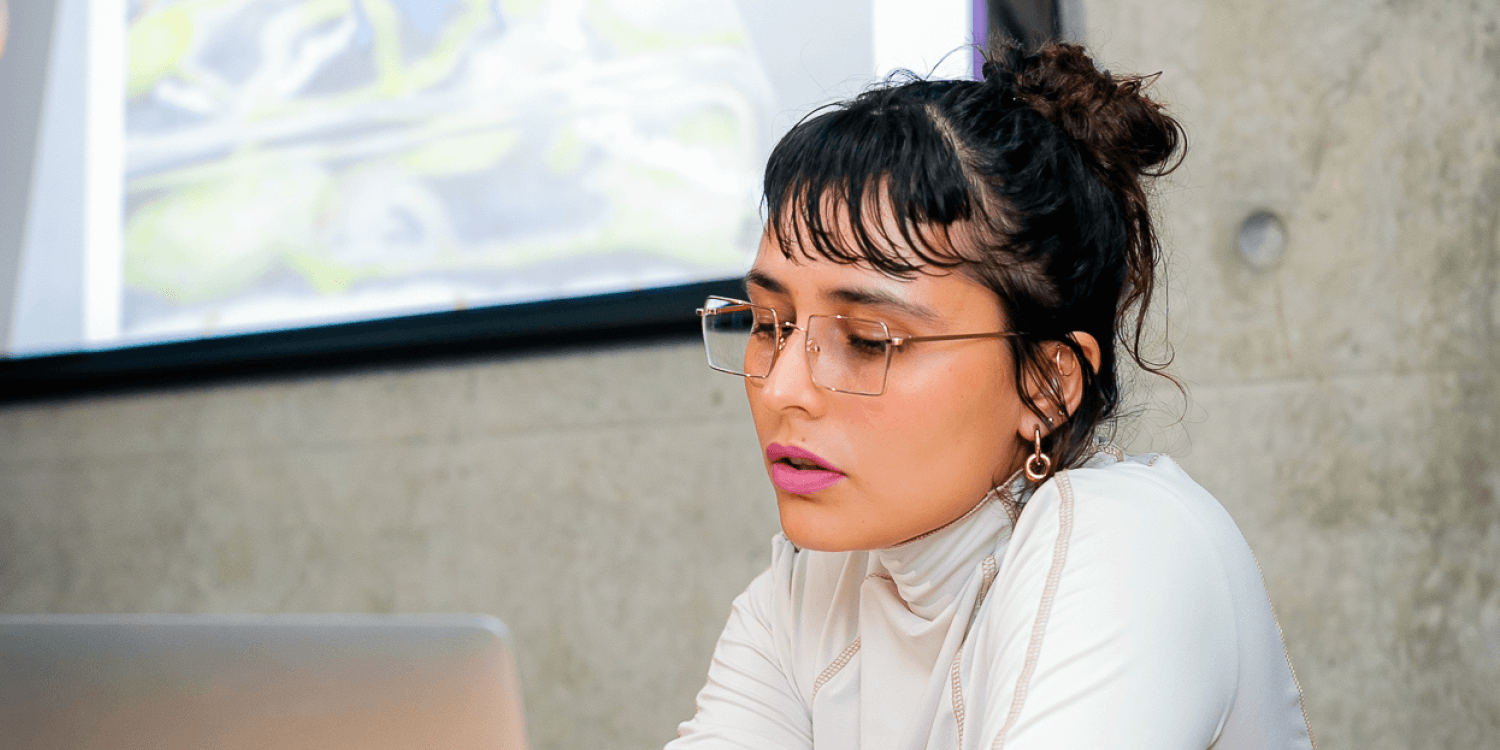This week we’re welcoming multidisciplinary sculptor, filmmaker, and researcher Alexandra Martens Serrano to G.A.S. Lagos. Alexandra was awarded the residency after being selected for the Goethe-Institut supported Studio Quantum programme. This innovative global constellation of residencies and supporting public interventions located across Dublin, Johannesburg, Mexico City, Karlsruhe, Rotterdam, Bangalore and London, will explore emerging quantum technologies through the prism of art.
During her residency, Alexandra’s research and methodology will be underpinned by three central pillars: field research, learning and collaboration, and artistic exploration and reflection. She hopes to use her time in Nigeria to interrogate the cultural and ecological landscapes of both Lagos and Ijebu engaging with local scholars, artists, and communities along the way as a means of facilitating a rich exchange of ideas and perspectives. By documenting her findings through various mediums, Alexandra hopes to facilitate a conversation between her encounters in Nigeria and the evolving world of quantum technologies fostering a dialogue that bridges art, science, and culture.
 Aquella Eterna Fuente, 2024 (L). Sublime Fountains, 2024 (R). Images courtesy of the artist.
Aquella Eterna Fuente, 2024 (L). Sublime Fountains, 2024 (R). Images courtesy of the artist.
What is the current focus of your practice?
My artistic practice materializes through research and artworks conceived as ecosystems within hybrid cosmologies. Each component in my process functions as an active force within non-linear and associative constellations. Framed by my deep interest in the convergence of techno-ecologies, and their potential to intersectionally reconfigure and entangle the world, the work is composed of a rich tapestry of analogue and digital elements. Ranging from sculptures, drawings, texts, and sounds, the works form complex systems characterized by a diversity of life forms, cultures, philosophies, and technologies.
Central to my research is the exploration of the different cosmologies of technology. I approach technologies and ecologies as two reciprocal areas that are influenced and mediated through one another. Currently, I am evolving interpretations of these complex worlds through a sense of contemporary magic realism by approaching them through Quantum processes and Quantum philosophy. By using and blending traditional techniques and materials with digital software and cybernetic processes, I engage with beyond-human identities and assemblages of objects and images within larger polyphonic frameworks. This approach allows me to delve into areas of linguistics, metaphysics, and bio-politics; cultivating works that serve as vessels for alternative methods of thinking and communicating.
For the past year, I have been conceptualizing my project Semillas del Azar (Seeds of Randomness). The core of this research lies in the importance and intersection between the use of random information (noise) in classic cybernetic and technological processes of cryptography. Inspired by the various methodologies of using natural and material phenomena to encode information in encryption processes, the foundation of this research is upheld by three different and intersectional themes housed under the larger ecological and technological umbrella.
Randomness, Seeds and Linguistics are the three intersectional concepts used as points of departure for this research. They form a series of poetic propositions towards reconsidering the futurity of biodiversity and technology beyond a binary state (that involves a condition of two alternatives only), but rather propose and explore them as existing within a state of superposition (a quantum principle that refers to a physical system as existing in multiple states simultaneously).

The Already Plural Body, 2023. Photo by Andrea Rossetti.
What drew you to apply for this residency and how do you think it will inform your wider practice?
My interest in this residency arose at the opportunity to engage with the cultural and natural ecologies of Lagos as a vibrant space and an expansive metropolis. The ability to learn and experiment with Quantum technologies while simultaneously exchanging with the Nigerian context is particularly significant. My excitement lies in being able to contribute to the development of emerging frameworks and philosophies of technology by shaping and orienting them in dialogue and in collaboration with non-western localities and cosmologies. I believe this residency will inform my practice in unmeasurable ways, hopefully, it is the beginning of a much longer dialogue between Lagos, Quantum theory and myself, but It will definitely give me the conditions to learn and apply new techniques, perspectives and concepts that will undoubtedly shape the way I produce and think.
Ideally, this experience can cultivate collaborations and relationships with a variety of people in different fields such as history, biodiversity, technology and art, so that we may collectively imagine and shape the vocabulary of the world differently.
Can you give us an insight into how you hope to use the opportunity?
I would like to take the opportunity of this residency to learn Quantum processing as a whole new lexicon of technology. To harness ideas of superposition and uncertainty, while being deeply situated in a moment when the interrelation of our ecosystem, the materiality of technology, and human influence is at its peak. At this particular moment in the evolution of quantum technology, it is extremely essential to be confronted with different forms of processing the world, through methods of coding (on and offline) and producing knowledge. My time in Lagos will hopefully expand my reflections on the dynamics surrounding structures that weave cultural and natural local systems together. Through field research and artistic experimentation, I aim to develop concepts of what I call analogue computation that approach different definitions of technology by grounding them in material histories and practices.
RESIDENCY ARCHIVE
EVENT: After the Future
Event Date: 27th September 2024
On September 27 2024, G.A.S. Foundation hosted After the Future, an immersive evening led by multidisciplinary artist, researcher, and current G.A.S. resident Alexandra Martens Serrano. The event began with a short lecture, where Alexandra uncovered her innovative approach to art, science, and social change. A brief panel discussion followed, where Timi Oludare and (Ìfẹ́) Ifeoluwa Osunkoya members of the research-driven collective, Ala Praxis joined her in conversation on the speed of the future, and what technology means to practitioners at the intersection of art and science. Following this, guests participated in a collaborative drawing exercise inspired by Cadavre Exquis, a gamified surrealist technique where participants contribute to a collective artwork without seeing the previous contributions. The outcomes of this exercise helped to build on dialogue around the evolving relationship between art and technology.
 Alexandra Martens Serrano gives a talk at After the Future.
Alexandra Martens Serrano gives a talk at After the Future.
ABOUT ALEXANDRA MARTENS SERRANO
ALEXANDRA MARTENS SERRANO is a post-disciplinary artist and researcher currently based in Amsterdam. Her education includes an MA with the roaming Dutch Art Institute (NL, 2022), a BA in Fine Arts from the Royal Academy of Art (NL, 2014). She has been an artist in residence at Deltaworkers, New Orleans (2018), LAGOS, Mexico City (2019), Billytown, The Hague (2016) and POST, Arnhem (2021). Her work has been exhibited internationally in The Netherlands, Switzerland, Belgium, Italy, U.S.A, Germany, and Mexico.
Most recent presentations include Espace LABO in Geneva (2023); Future Gallery in Berlin (2023); a solo presentation at Centrale Fies in Italy (2022) and a show at MAMA in Rotterdam (2022). She is the recipient of the PRO Invest grant (2016 and 2019), the Pro Onderzoek (2018) and SPOT (2018) grants from STROOM in The Hague (NL); as well as the Stipendium for Emerging Artists (2017) from the Mondriaan Funds (NL).

Alexandra's residency is generously supported by Studio Quantum, an international events and artist-in-residence programme from the Goethe-Institut, exploring emerging quantum technologies through the lens of art.
